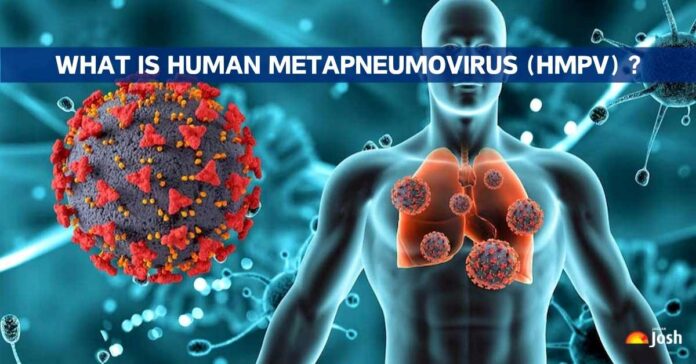Human Metapneumovirus (HMPV): What to know, how it affects you
Recent days have seen a sharp rise in cases of Human Metapneumovirus (HMPV) across northern Chinese provinces, with a significant impact on children.
The virus, which has been causing overcrowded hospital waiting rooms, is drawing comparisons to the early days of COVID-19 due to its rapid spread.
Reports indicate that cases have risen noticeably in the past few weeks, surpassing levels seen at the same time last year.
HMPV typically presents with cold-like symptoms, including a cough, runny nose or nasal congestion, sore throat, and fever, which usually resolves within about five days.
More severe symptoms, such as bronchitis, bronchiolitis, and pneumonia, can occur with infections like HMPV (Human Metapneumovirus), causing sufferers to experience shortness of breath, severe cough, or wheezing.
READ ALSO: NCDC reactivates COVID-19 protocols amidst HMPV outbreak in China
Experts are advising caution when it comes to flu-like symptoms, due to concerns that they may be caused by HMPV. Professor John Tregoning, a vaccine immunology expert at Imperial College London, explained that HMPV shares similar symptoms, particularly in children, with respiratory syncytial virus (RSV), which usually causes mild, cold-like symptoms.
“HMPV is one of many winter viruses that circulate, and like other viruses, it spreads through coughs, sneezes, and droplets,” said Professor Tregoning. He recommended protecting yourself by staying in well-ventilated spaces, covering your mouth when coughing, and washing your hands regularly. “Rest, hydration, and avoiding spreading the virus are key,” he added. As there is no vaccine or specific antiviral treatment for HMPV, treatment focuses on managing symptoms.
Jaya Dantas, a professor of international health at Curtin University in Australia, emphasized the importance of a cautious approach, given the lessons learned from the COVID-19 pandemic. “We should test, stay home, wear a mask in public, and protect vulnerable groups such as young children, the elderly, and those with weakened immune systems,” she said. HMPV can lead to severe cases, especially in these groups, potentially progressing to pneumonia.
However, some experts caution against undue alarm. Professor Jonathan Ball, a virologist at the Liverpool School of Tropical Medicine, noted that HMPV has been known since 2001 and has been circulating in humans for at least 50 years—likely much longer. While it can lead to pneumonia, particularly in young children, this is relatively rare.
Professor Paul Hunter, an infectious disease expert at the University of East Anglia, pointed out that almost every child will experience at least one HMPV infection by their fifth birthday, with multiple re-infections throughout their life. “It is one of the leading viral causes of respiratory infections in children under five,” he said. Recent weeks have seen a noticeable increase in cases in England. However, he also noted that this could reflect better diagnosis rather than an actual rise in infections, as surveillance efforts improve.
Health officials in Beijing have downplayed the increase in cases, describing it as part of the typical winter cycle. However, the Chinese Center for Disease Control and Prevention has highlighted rising rates of flu-like illnesses. Data for the week of December 29 indicated that 7.2% of outpatient visits in northern provinces were related to flu-like symptoms, marking a 12% increase from the previous week and surpassing levels seen during the same period in previous flu seasons since 2021. In the southern part of the country, 5.7% of visits were for flu-like illnesses, a 21% increase from the previous week, although still below the peaks of 2022 and 2023.
In the UK, flu cases are currently surging, with hospital admissions for flu patients quadrupling compared to a month ago. Surveillance data shows that more than 4,500 beds were occupied daily by flu patients last week, a 3.5-fold increase compared to the same week last year. Critical care admissions have also risen significantly, with 211 patients in critical care—up 69% from the previous week. Experts warn that the situation may worsen before it improves, especially as more people have socialized indoors over the Christmas and New Year period.
Follow the Neptune Prime channel on WhatsApp:
Do you have breaking news, interview request, opinion, suggestion, or want your event covered? Email us at neptuneprime2233@gmail.com






